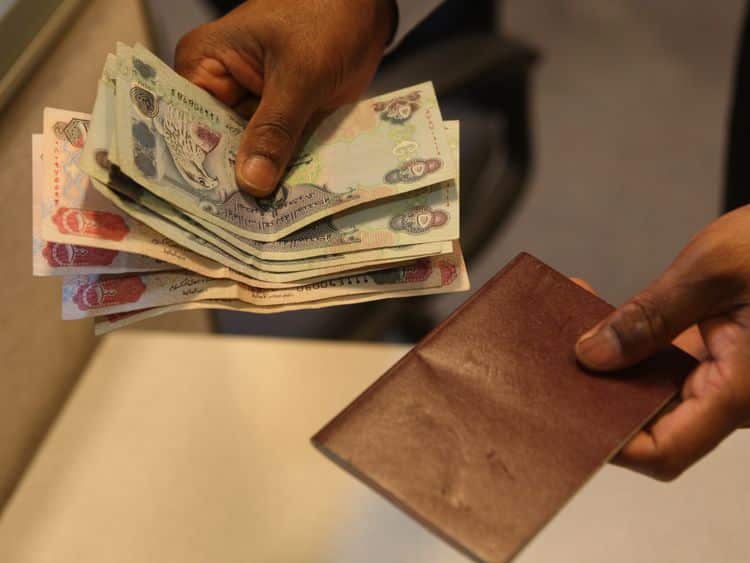UAE debt collection laws – Debt collection is an essential part of any economy, but it can also be a challenging and complex process. The United Arab Emirates (UAE) has its own set of debt collection laws and regulations, which are designed to protect the rights of both creditors and debtors and ensure fair and ethical debt collection practices.
In recent years, the UAE government has introduced new debt laws to strengthen the legal framework for debt collection and insolvency proceedings, providing a more modern and comprehensive approach to debt collection. Understanding the UAE debt recovery Dubai and regulations is essential for both creditors and debtors to navigate the debt collection practices and guidelines and ensure compliance with the relevant laws and regulations.
In this context, Khaiarllah’s discussion aims to provide an overview of the UAE debt collection laws, procedures, illegal debt collection practices, and regulations.
Uncover Additional Insights About: Real Estate Dispute Against a Developer Result

What are the UAE debt collection laws? | New debt collection laws 2023
The United Arab Emirates (UAE) has several laws and regulations governing debt collection practices. These laws aim to protect the rights of both the creditor and the debtor.
The primary law governing debt collection in UAE is Federal Law No. 18 of 1993 on Commercial Transactions (the Commercial Transactions Law). This law sets out the rules and regulations for debt collection for commercial transactions in the UAE.
In addition to the Commercial Transactions Law, there are other laws and regulations that apply to debt collection in the UAE, including:
- Civil Transactions Law: Legal aspects of debt collection governs non-commercial debt collection and provides the legal framework for debt collection activities between individuals.
- Federal Law No. 4 of 2020 on Securing the Rights of the Author of a Work of Art: This law applies to the collection of debts related to intellectual property rights.
- The UAE Central Bank’s Debt Collection Regulations: These regulations set out the requirements for banks and financial institutions when collecting customer debts.
Read more about Debt Collector Harassment
Debt collection practices and guidelines in UAE
Under UAE debt collection laws and regulations, debt collectors in UAE are required to follow certain guidelines when collecting debts, including:
- Contacting the debtor only during reasonable hours and avoiding harassment or intimidation.
- Not disclosing the debtor’s personal or financial information to third parties without the debtor’s consent.
- Providing clear and accurate information about the debt and the collection process to the debtor.
- Obtaining a court order before taking any legal action against the debtor.
- Providing an opportunity for the debtor to dispute the debt and seek legal advice.
Failure to comply with these guidelines can result in legal action against the debt collector because these guidelines aim to protect the rights of debtors and ensure fair and ethical debt collection practices.
Learn More About: Real estate law-Disputes in the UAE
What is the new law for debt in UAE?
The Federal Decree-Law No. (19) of 2019 on Insolvency ( insolvency law uae), which aims to govern instances involving people dealing with financial difficulties, was announced by the United Arab Emirates Cabinet. In contrast to present bankruptcy legislation, which only applies to businesses and entities, this new law attempts to handle financial issues belonging to a natural person.
UAE debt collection laws (Debt collection litigation) will provide borrowers some breathing room by letting them escape criminal prosecution for fiscal problems like bounced cheques. Debtors will have the option to use bankruptcy legislation to settle their obligations without facing legal repercussions, despite the fact that this option is not decriminalized.
Several new laws related to debt in the UAE aimed to strengthen the legal framework for debt collection DUBAI and insolvency proceedings. Here are some of the key changes:
1- Insolvency Law:
The UAE introduced a new insolvency law, Federal Decree-Law No. 9 of 2016, which provides a legal framework for companies to restructure or liquidate their debts. The law allows companies to negotiate with creditors to reach a settlement plan, and it provides for court-supervised restructuring proceedings.
2- Bankruptcy Law:
The UAE also introduced a new bankruptcy law, Federal Law No. 9 of 2016, which aims to protect the rights of both creditors and debtors in bankruptcy proceedings. The law allows for the restructuring of debts, the sale of assets, and the discharge of debts in certain circumstances.
3- Decriminalization of bounced checks:
The UAE government decriminalized the issuing of bounced checks, which had previously been a criminal offense. The new law aims to reduce the number of people who are imprisoned for bouncing a check, which was a common occurrence in the UAE.
4- Debt repayment plan:
The UAE Central Bank introduced a new debt relief program, which allows individuals who are struggling with debt to enter into a repayment plan with their creditors. The program provides for a maximum repayment period of four years, with the possibility of extending it for up to 12 years in exceptional cases.
Overall, these new debt laws aim to provide a more modern and comprehensive legal framework for debt collection and insolvency proceedings in the UAE, while also offering greater protections and rights for debtors. It’s important for both creditors and debtors to be aware of these changes and how they may affect debt collection practices.
Know more about Debt Collection Services in UAE

How Are Debts Collected In The United Arab Emirates?
Debt collection in UAE typically follows a multistep process that involves various stages and options for both creditors and debtors. The process can involve negotiation, mediation, and legal action, depending on the circumstances of the debt.
1- Reminder and negotiation:
When a debtor misses a payment or defaults on a debt, the creditor may send a reminder letter or contact the debtor to request payment. At this stage, negotiation may occur to reach a payment agreement.
2- Formal demand:
If the debtor does not respond or refuses to pay, the creditor may send a formal demand letter stating the outstanding amount and requesting payment within a specific timeframe.
3- Mediation:
If negotiation and formal demand do not yield results, the creditor may engage a mediator to facilitate a settlement between the parties.
4- Legal action:
If mediation fails or is not an option, the creditor may initiate legal action against the debtor through the courts. This can include filing a claim, obtaining a judgment, and taking enforcement action such as the seizure of assets or wage garnishment.
It’s important to note that the UAE has a complex legal system, and the debt collection process can vary depending on the type of debt, the parties involved, and other factors. Debtors also have legal rights and options for disputing debts or challenging collection practices so you can contact the best debt collection agencies in UAE to help you.
Access More Information About: The Company’s Liquidation and Asset Division in the UAE
What is a creditor legally required to do if you dispute a debt in UAE?
In the UAE, if a debtor disputes a debt, the creditor is legally required to provide evidence supporting the validity of the debt. They must respond to the dispute in writing, addressing the specific concerns raised by the debtor. Failure to provide evidence or adequately respond to the dispute may affect the creditor’s ability to pursue legal action.
conclusion
navigating debt collection in UAE requires an understanding of the legal framework, procedures, and regulations governing debt collection and insolvency proceedings. The UAE government has introduced new laws and regulations in recent years to provide a more modern and comprehensive approach to debt collection, with a focus on protecting the rights of both creditors and debtors.
However, the complexity of the legal system and the nuances of the debt collection process can make it difficult for creditors and debtors alike to navigate the system effectively. This is where our expertise as debt collection lawyers can be invaluable, helping clients to understand their rights and obligations and guiding them through the legal process to ensure a fair and ethical outcome with many of the debt collection services offered by our law firm.
In summary, the UAE debt collection laws and lawyers in Dubai play a critical role in ensuring that the debt collection process is transparent, fair, and efficient for all parties involved.
Learn Further About: What is the new UAE cheque bounce law? | Dubai cheque bounce case





Good evening.
I would like to requeat for your advice, after i’ve lost my job and found a new one back in 2017-2018. I have settled the credit card with FGB and they issued a signed and stamped settlement letter, with the agreed amount to be settled within certain period.
But after 3 months of payment, i was requested by my new company to travel to Turkey for business trip. Unfortunately, i was not aware of the travel ban because i was not informed and in good faith that i believe all is okay after settling with them. I’ve got off loaded, handcup from airport to police station and still bewildered what exactly was the reason for it. Then end up paying police fine and the un-utilized air ticket fare with all the shame of walking with 2 police officers. Now, they have called our HR and informed them about my unsettled credicard balance. With all honesty, i told them how can i be sure that you will clear my name after i pay you again? I am afraid they will just take the oaymeny and still i will have my name uncleared. Also, how can i make make them pay for the humiliation they’ve caused me before and now, and how much should i pay them to clear my name and resolve this once and for all. Total amount in the settlement was around 23k dirhams and i have paid 9k dirhams before i got offloaded.
Hi I’m from Global Debt Advisory we are company helping people in debts to get solution to there liabilities you can go to our website named GLOBAL DEBT ADVISORY and look for Mary will be happy to assist you Thank You
Hi,i have a outstanding amount of 25000 aed to dubai first bank(credit card).now that i am jobless due to my chronic health issues i may need to leave uae.how i settle my debt in a small amount